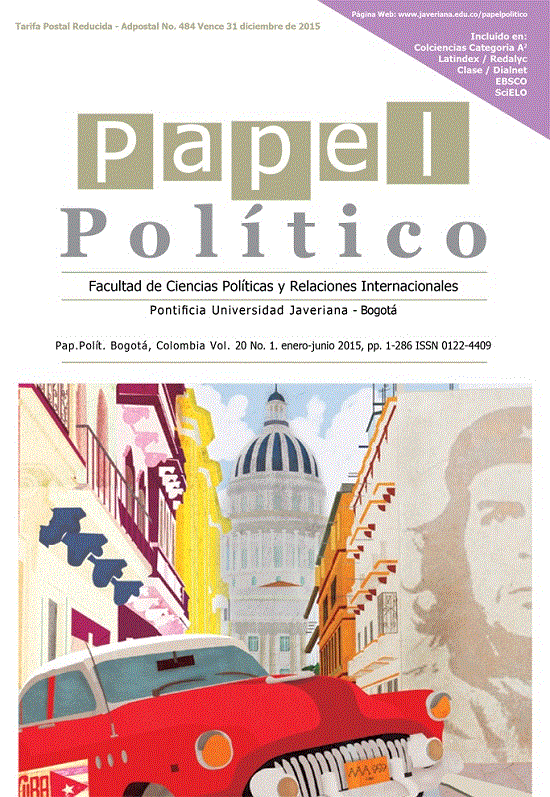Abstract
American Sociologist Joseph Kahl (1988) used tosay that in Latin America, scholars and researchersof sociology were seduced by the revolutionaryspirit of the students and started using widetheories which allowed them to understand thereasons for Latin America’s backwards progressinstead of studying accessible cases in detailto reach a wider reality. From this (now old)tradition, two trends (Bryant, 2003) have takenplace which seem to have a wide acceptanceat a regional level: the trend of defending freetrade as if it were some sort of unquestionable truth and the trend of attacking it as if it weresome sort of illness we have to live with. Thishas become notorious at the academic level.Even certain authors of both academic trends(Mendoza, 2012; Trentmann, 1998) have takenadvantage of the inherent conceptual scarcityof these speeches in political economy in orderto reinforce their ideological arguments. Consequently,the speech that aims to attack freemarket by any means possible, has led scholarsand politicians to group within some sort oftheoretical bag concepts such as state reduction,the neoliberal philosophy and institutions suchas the IMF and the World Bank, under the assumptionthat they are all in complete agreementand work harmoniously. This kind of thinkingis supported by the concept of internal colonizationby Mexican sociologist Pablo GonzalezCasanova (Kahl, 1988). This enormous andunintelligible conceptual potpourri is commonlyknown by the name of Washington Consensus.However, a careful analysis of the each elementwhich supposedly comprises the WashingtonConsensus will easily show that there are someof these elements which have a very weak conceptualrelation amongst them and some othersare plain contradictory. This article intended togive some clarity on this issue through the historicaland theoretical review of three conceptswhich have been widely controversial withinLatin America. With such purpose, this workwill first state some conceptual thoughts. Thenthe history of the IMF will be shortly narrated,then I will proceed to talk about the concept ofstate reduction and the neoliberal philosophyin overall –through the thoughts of its greatestadvocate, Milton Friedman– and its original ideaabout non intervention. Then the history of the Washington Consensus will be mentioned andall three elements will be compared through acomparative chart. Finally, some conclusionswill be stated.Esta revista científica se encuentra registrada bajo la licencia Creative Commons Reconocimiento 4.0 Internacional. Por lo tanto, esta obra se puede reproducir, distribuir y comunicar públicamente en formato digital, siempre que se reconozca el nombre de los autores y a la Pontificia Universidad Javeriana. Se permite citar, adaptar, transformar, autoarchivar, republicar y crear a partir del material, para cualquier finalidad (incluso comercial), siempre que se reconozca adecuadamente la autoría, se proporcione un enlace a la obra original y se indique si se han realizado cambios. La Pontificia Universidad Javeriana no retiene los derechos sobre las obras publicadas y los contenidos son responsabilidad exclusiva de los autores, quienes conservan sus derechos morales, intelectuales, de privacidad y publicidad.
El aval sobre la intervención de la obra (revisión, corrección de estilo, traducción, diagramación) y su posterior divulgación se otorga mediante una licencia de uso y no a través de una cesión de derechos, lo que representa que la revista y la Pontificia Universidad Javeriana se eximen de cualquier responsabilidad que se pueda derivar de una mala práctica ética por parte de los autores. En consecuencia de la protección brindada por la licencia de uso, la revista no se encuentra en la obligación de publicar retractaciones o modificar la información ya publicada, a no ser que la errata surja del proceso de gestión editorial. La publicación de contenidos en esta revista no representa regalías para los contribuyentes.


